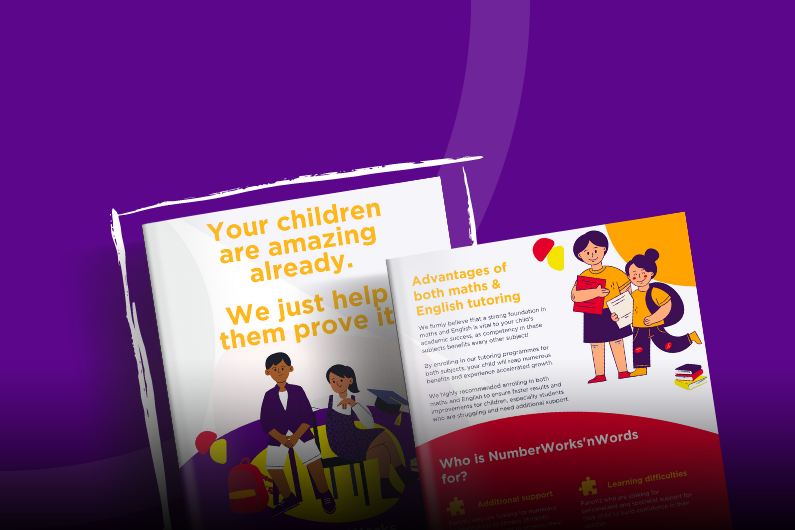11+ Exams: Navigating the Path to Grammar Schools

The 11+ exams in the United Kingdom are a set of standardised tests taken by students in their final year of primary school, typically around the age of 11. These exams are used to assess a student's academic ability and determine their suitability for grammar secondary schools.
The 11+ exams usually cover subjects such as English, maths, verbal reasoning, and non-verbal reasoning. The specific content and format of the exams can vary depending on the region or school system.
The 11+ exams are most commonly associated with grammar schools, which are schools that often place a strong emphasis on academic achievement. However, not all areas in the UK use the 11+ exams, and the criteria for admission to grammar schools can vary. Some areas use different assessment methods or do not have grammar schools at all.
Parents and children need to be aware of the specific requirements regarding the 11+ exams, as practices can differ between regions. Preparation for the 11+ exams often involves practice tests and familiarising students with the types of questions they may encounter.
Preparation in Schools
Significant classroom time is devoted to preparing children for the 11+ exams. This dedicated effort ensures that students are adequately prepared with the skills and knowledge necessary to excel in the evaluated areas.
Schools employ a multifaceted approach to prepare students for the 11+ exams in the UK. One crucial aspect involves aligning the regular curriculum with the exam requirements, integrating focused teaching on English, maths, and both Verbal and Non-Verbal Reasoning skills.
This ensures that the core subjects are geared towards developing the competencies essential for success in the exams. Specialised classes dedicated to 11+ preparation are often offered, with experienced teachers guiding students through the nuances of the exams.
Practice tests play a pivotal role in the preparation process, providing children with exposure to the exam format. Mock exams, conducted under exam conditions in the classroom, further simulate the testing environment and offer valuable insights through constructive feedback.
Schools also provide students with relevant study materials, recommending approved textbooks and practice guides to supplement their learning.
What exam questions are in the 11+ exams?
For parents undergoing 11+ exam testing for the first time, it can raise many questions, anxieties, or concerns about what is in the exams and what they need to understand to help their children. The 11+ exams typically encompass four key areas: English, maths, Verbal Reasoning, and Non-Verbal Reasoning.
In the English section, students face questions related to reading comprehension, vocabulary, spelling, punctuation, and grammar. Tasks may involve analysing passages, identifying errors, or completing sentences with appropriate words. The maths component covers arithmetic, algebra, geometry, and problem-solving, ranging from basic calculations to more intricate problem-solving exercises.
Verbal Reasoning evaluates a student's ability to comprehend and manipulate information using words. Questions often include analogies, word relationships, code-breaking, and verbal logic. Non-verbal reasoning assesses spatial and visual reasoning skills, featuring tasks like pattern recognition, series completion, spatial reasoning, and other non-verbal problem-solving exercises.
Preparation for the 11+ exams often involves practising with sample questions and past papers specific to the exam being undertaken. The goal should be to put your child’s mind at ease, not to create additional academic pressure. Cramming, for 11+ exams may only increase your child’s anxiety regarding academic performance.
Will my child need to prepare?
The necessity for your child to prepare for the 11+ exams depends on several factors, primarily determined by the local education system and the type of secondary schools in your area. In regions where grammar schools use the 11+ exams for admissions, preparation may be advisable. In contrast, areas with comprehensive schools might have different admission criteria, making 11+ preparation unnecessary.
Understanding your child's academic abilities is crucial. If your child excels in their studies and enjoys intellectual challenges, they may already possess a solid foundation. However, additional preparation can instil confidence and familiarity with the exam format.
Consider your long-term educational goals for your child. If you believe that a grammar school aligns with your academic strengths and aspirations, preparing for the 11+ exams might be a strategic decision. It's also important to be aware of local norms and expectations.
Should you choose to have your child prepare for the 11+ exams, various resources are available, including practice papers, study guides, and tutoring with NumberWorks’nWords.
It is crucial to bear in mind that 11+ exams should not be perceived as the exclusive measure of your child's academic abilities. While the exams provide valuable insights, a more comprehensive understanding of your child's capabilities can be achieved by considering their progress across various subjects and learning experiences.
How to Understand 11+ Reports
Understanding 11+ reports is crucial for parents seeking insights into their child's performance and areas for improvement. These reports typically present subject-specific scores in English, maths, Verbal Reasoning, and Non-Verbal Reasoning.
Examining percentile rankings provides context, indicating how well your child has performed compared to peers, while standardised scores offer a measure against the average student of the same age. Reports often highlight strengths and weaknesses, pinpointing specific topics or question types that may require attention.
Comparing scores to the national average and assessing percentile bands for different subjects can help you understand how well they are doing compared to everyone else in their cohort. Age-related scores help understand a child's performance relative to their age group, and raw scores indicate the number of correct answers, offering insight into the difficulty level faced.
An overall performance summary, along with qualitative feedback and teacher recommendations, provides a comprehensive view of a child's suitability for selective education. Understanding the weightage of each section in the overall percentage score is crucial when a test has multiple components.
We understand that is a lot to wrap your head around, the team at NumberWorks’nWords are experts at interpreting 11+ exam results and can provide you with an understanding of how your child is performing and put together a personalised plan to help improve any areas.
What if my child is underperforming?
Don’t panic. Instead, acknowledge your child's efforts and strengths, and offer them support and encouragement. Let them know that you're proud of them regardless of their score and that you're here to help them improve their skills and reach their goals.
Whilst it is natural to be concerned it is also important to remember that 11+ exams are just one test, and it doesn't define your child's intelligence, capabilities, or potential.
The next step is to understand your child's strengths and weaknesses in the different areas of 11+. You can do this by reviewing their test results, talking to their teachers about their performance, or booking a free assessment with the NumberWorks’nWords team. This assessment can help you identify which areas your child needs to focus on, and which areas they are excelling in.
Why our 11+ programmes are more effective than practice alone
At NumberWorks’nWords, our experienced team has crafted programmes tailored to offer children the necessary support for 11+ exams. Our programmes aim to enhance your child's numeracy and literacy skills by reinforcing their foundational knowledge, and prioritising understanding over mere memorisation.
If a student encounters challenges with a particular topic, our tutors can refine their programme to ensure thorough comprehension is achieved.
Through access to practice tests and past papers, our 11+ students refine their literacy and numeracy skills, concentrating on specific areas that demand additional attention.



